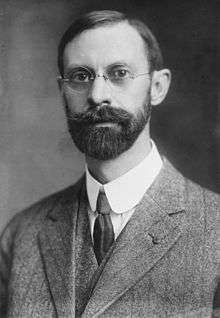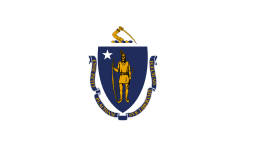Frederick W. Dallinger
| Frederick William Dallinger | |
|---|---|
 Frederick William Dallinger | |
| Member of the U.S. House of Representatives from Massachusetts's 8th district | |
|
In office March 4, 1915 – March 3, 1925 | |
| Preceded by | Frederick Simpson Deitrick |
| Succeeded by | Harry Irving Thayer |
|
In office November 2, 1926 – October 1, 1932 | |
| Preceded by | Harry Irving Thayer |
| Succeeded by | Arthur Daniel Healey |
| Judge of the United States Customs Court | |
|
In office October 2, 1932 – October 31, 1942 | |
| Appointed by | Herbert Hoover |
| Preceded by | Israel F. Fischer |
| Succeeded by | Charles Drummond Lawrence |
| Member of the Massachusetts Senate | |
|
In office 1896–1899 | |
| Member of the Massachusetts House of Representatives | |
|
In office 1894–1895 | |
| Personal details | |
| Born |
October 2, 1871 Cambridge, Massachusetts |
| Died |
September 5, 1955 (aged 83) North Conway, New Hampshire |
| Political party | Republican |
| Alma mater |
Harvard College A.B. Harvard University A.M. Harvard Law School LL.B. |
| Occupation | Judge |
Frederick William Dallinger (October 2, 1871 – September 5, 1955) was an American Republican politician who served as a U.S. Representative from Massachusetts and as a Judge for the United States Customs Court.
Early life and education
Born in Cambridge, Middlesex County, Massachusetts, he attended the public schools and graduated from Cambridge Latin School in 1889. He went on to Harvard University, where he graduated in 1893, and then attended Harvard University Law School until he graduated in 1897. He was admitted to the bar in 1897 and commenced practice in Boston.[1][2]
Political career
Dallinger was a member of the Massachusetts House of Representatives in 1894 and 1895 and served in the state Senate from 1896 to 1899. He was public administrator of Middlesex County 1897 to 1932, President of the Cambridge Chamber of Commerce and a lecturer on government at Harvard University in 1912. He was elected as a Republican to the Sixty-fourth and to the four succeeding Congresses (March 4, 1915 to March 3, 1925). He was chairman of the Committee on Elections No. 1 (Sixty-sixth and Sixty-seventh Congresses), Committee on Education (Sixty-eighth Congress).[3]
He was not a candidate for renomination in 1924, but was an unsuccessful candidate for the Republican nomination for United States Senator. Subsequently he was elected to the Sixty-ninth Congress to fill the vacancy caused by the death of his successor, Harry Irving Thayer. The same day he was elected to the Seventieth Congress; he was re-elected to the Seventy-first and Seventy-second Congresses and served from November 2, 1926, until his resignation effective October 1, 1932, having been appointed to the bench.[4]
Federal judicial service
On June 20, 1932, President Hoover nominated Dallinger to serve as a Judge for the United States Customs Court, to the seat vacated by Judge Israel F. Fischer. He was confirmed by the Senate on June 28, 1932, and received his commission on July 8, 1932. He took his seat on the Customs Court on October 2, 1932, the day after his resignation from Congress, and served until his retirement on October 31, 1942.[5]
Retirement
Dallinger then engaged in agricultural pursuits. Retiring to Center Lovell, Maine, he died in North Conway, New Hampshire, on September 5, 1955. His body was interred in Center Lovell Cemetery, Center Lovell, Maine.[6][7]
References
- ↑ Biographical Directory of Federal Judges
- ↑ Biographical Directory of the United States Congress
- ↑ Biographical Directory of the United States Congress
- ↑ Biographical Directory of the United States Congress
- ↑ Biographical Directory of Federal Judges
- ↑ Biographical Directory of Federal Judges
- ↑ Biographical Directory of the United States Congress
- United States Congress. "Frederick W. Dallinger (id: D000012)". Biographical Directory of the United States Congress.
- Frederick W. Dallinger at the Biographical Directory of Federal Judges, a public domain publication of the Federal Judicial Center.
External links
| United States House of Representatives | ||
|---|---|---|
| Preceded by Frederick Simpson Deitrick |
Member of the U.S. House of Representatives from Massachusetts's 8th congressional district 4 March 1915 – 3 March 1925 |
Succeeded by Harry I. Thayer |
| Preceded by Harry I. Thayer |
Member of the U.S. House of Representatives from Massachusetts's 8th congressional district 2 November 1926 – 1 October 1932 |
Succeeded by Arthur D. Healey |

